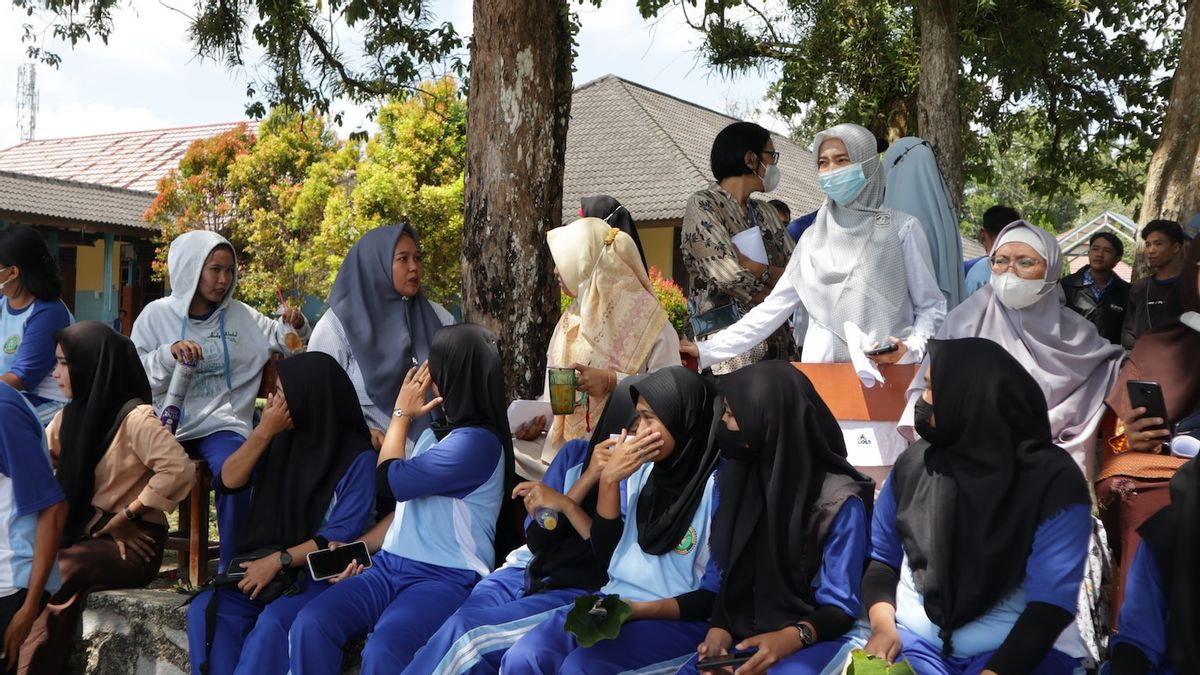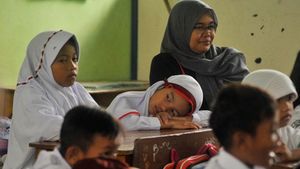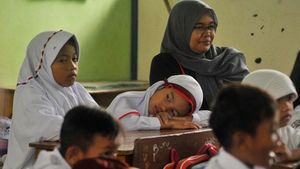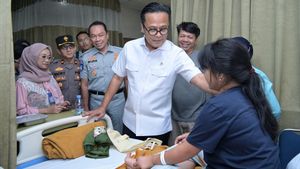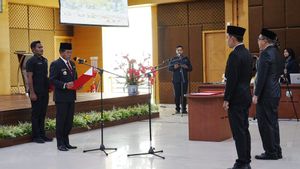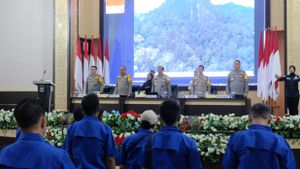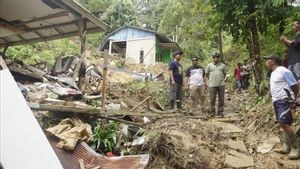JAKARTA - Chairman of the Indonesian House of Representatives, Puan Maharani, highlighted the incident of a teacher who treated dozens of junior high school students in Sukodadi, East Java, as a form of sanctions or punishment. He emphasized that every punishment for students should be educational coaching, not a form of intimidation from a teacher to students.
"This incident reminds us all of the importance of creating an inclusive learning environment, full of appreciation, and respecting the fundamental rights of each individual," said Puan, Thursday, August 31.
As is known, a teacher at SMPN 1 Sukodadi, Lamongan, East Java, used 14 students as punishments for not using the hijab or ciput interior. For this incident, dozens of parents protested and did not accept that their children were abused.
Puan also regretted the incident. According to him, the punishment by the teacher with the initials EN was not wise and did not reflect virtue.
"The form of sanctions or punishment for students should be encouraging, not intimidation and demeaning attitude that makes students feel pressured," said the first woman who served as Chair of the DPR RI.
"Taking student hair as a form of punishment is not a good approach and can be categorized as a violation of human rights (HAM), especially rights for children," continued Puan.
اقرأ أيضا:
The former Coordinating Minister for Human Development and Culture said that clear rules and proportional sanctions must be regulated in school regulations. Puan said this was necessary to avoid spontaneous and uncontrolled actions that could harm students and the image of the educational institution itself.
"Sanctions applied must be useful in shaping positive behavior, not harming or degrading students' dignity," he said.
In addition, Puan assessed that it is also important to implement school policies that are clearly related to students' human rights. Including the right to dress according to personal beliefs and identities.
"This policy must be applied consistently and fairly by all educator staff and related parties. This will provide a strong basis for creating an inclusive learning environment and respecting diversity," said Puan.
He added that the incident at SMPN 1 Sukodadi could serve as a warning for the relevant Ministries and agencies to continue to evaluate schools. Puan said that periodic evaluation is needed to ensure that the educational environment is always a place where students can grow and develop with a full sense of security, respect, and independence.
"The importance of coaching and strict rules so that cases like this do not happen again in the future, comprehensive coaching is needed for teachers in the face of disciplinary violations in schools," said Bung Karno's grandson.
According to Puan, education about human rights and rights for children must be an integral part of the curriculum and teacher training. So that every violation does not need to be responded to with degrading physical action, but with a communicative approach that facilitates the growth of students.
"Teachers need to have an in-depth understanding of student rights and how to ensure that the learning environment not only creates good quality of education, but also respects the dignity of each individual," said Puan.
Puan reminded that a teacher has an important role in shaping students' character and development. Therefore, training is needed in building communicative closeness to every student to realize the wishes of their students.
"Teachers need to build positive relationships with students, listen to them, understand the challenges they face, and help them grow into tough and ethical individuals," he said.
Furthermore, Puan stated that the DPR RI will continue to be committed to collaborating with related parties in guarding and ensuring that education in Indonesia is based on ethical, respectful, and inclusive values.
"With preventive, educational, and proper policy implementation steps, we can ensure that all students feel safe, respected, and empowered on their educational journey," concluded Puan.
The English, Chinese, Japanese, Arabic, and French versions are automatically generated by the AI. So there may still be inaccuracies in translating, please always see Indonesian as our main language. (system supported by DigitalSiber.id)
